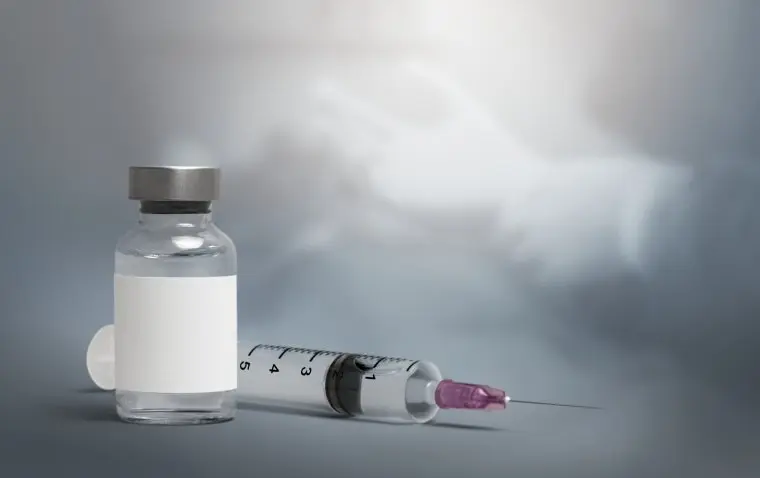In the competitive world of bodybuilding, anabolic steroids are often discussed for their ability to promote muscle growth and enhance physical performance. Among the array of choices available to bodybuilders, Nandrolone Phenylpropionate (NPP) and Nandrolone Decanoate (Deca) are two prominent names often brought up in discussions surrounding performance enhancement. Despite their similarities as nandrolone-based anabolic steroids, NPP and Deca have distinct characteristics, particularly in terms of their ester composition, which influences their absorption rates and half-lives in the human body.
An understanding of both NPP vs Deca is crucial for bodybuilders who consider incorporating these substances into their regimen. While NPP is known for its faster action due to a shorter ester chain, Deca boasts a longer-lasting effect, which may appeal to those seeking sustained anabolic benefits. The differences extend to their respective dosing schedules and the onset of their physiological effects. These variances are not only critical from an efficacy standpoint but also have implications for the steroids’ side effect profiles, which can influence a bodybuilder’s preference for one over the other.
Quick Summary
- NPP vs Deca are distinct nandrolone-based steroids with different absorption rates and half-lives.
- Appropriate dosing and administration of NPP versus Deca can affect efficacy and side effects.
- Bodybuilders value both for their ability to promote muscle growth, although preferences vary based on individual objectives and experiences.
NPP Vs Deca

When comparing (Nandrolone Phenylpropionate) NPP vs Deca (Nandrolone Decanoate), commonly known as Deca Durabolin, it is essential to examine their chemical structures, properties, and historical backgrounds as these factors influence their use and effects in bodybuilding.
Chemical Structure and Properties
Nandrolone Phenylpropionate (NPP) and Nandrolone Decanoate, both derivatives of the primary anabolic steroid nandrolone, differ mainly in their ester chains. The phenylpropionate ester in NPP is shorter, leading to a faster release into the bloodstream post-injection, which requires more frequent dosages to maintain stable blood levels. In contrast, the decanoate ester attached to nandrolone in Deca Durabolin is longer, thus providing a slower release and allowing for less frequent dosages.
- NPP:
- Ester: Phenylpropionate
- Half-life: Approximately 4.5 days
- Release: Fast-acting
- Deca Durabolin:
- Ester: Decanoate
- Half-life: Approximately 15 days
- Release: Slow-acting
Historical Overview
Both compounds were developed by the pharmaceutical company Organon. Nandrolone as the core hormone was introduced in the 1950s, with NPP entering the market initially. It was utilized for various medical conditions, including muscle wasting diseases, until Deca Durabolin was released in the 1960s. The prolonged effects of Deca due to the decanoate ester gained prominence in both medical settings and among athletes and bodybuilders for its muscle-building properties. While both steroids share a common history in therapeutic applications, they have diverged in their popularity and usage within the bodybuilding community.
References
- “Nandrolone: A multi-faceted doping agent”, https://www.ncbi.nlm.nih.gov/pmc/articles/PMC2439524/
- “The pharmacokinetics of nandrolone ester in an oil vehicle”, https://pubmed.ncbi.nlm.nih.gov/11297022/
Anabolic Effects in Bodybuilding

The integration of anabolic steroids in bodybuilding primarily aims to enhance muscle growth, strength, and overall performance. These substances influence the body’s ability to synthesize protein, recover from workouts, and increase lean muscle mass.
Muscle Growth and Recovery
Anabolic steroids significantly increase protein synthesis within the body, leading to accelerated muscle growth and lean muscle gains. Their anabolic effects facilitate quicker recovery times, allowing bodybuilders to undergo more frequent and intense training sessions.
Strength and Power
The use of anabolic steroids can lead to considerable gains in strength and power. This is primarily through their enhancement of muscle mass and improvements in neuromuscular functions, which are critical for lifting heavier weights and improving overall power output.
Endurance and Performance
Regarding endurance and performance, anabolic steroids contribute by increasing the production of red blood cells. This leads to improved oxygen delivery to muscles, thereby boosting stamina and workout capacity. Enhanced endurance allows bodybuilders to sustain prolonged training at higher intensities.
Dosage and Administration

In bodybuilding, the precision of dosage and administration schedules is crucial to maximize anabolic benefits and minimize side effects. These parameters vary depending on the specific anabolic steroid used.
Recommended Dosages
Nandrolone Phenylpropionate (NPP) NPP is typically administered at doses ranging from 100 to 200 mg every other day or 300 to 400 mg per week for men. This is due to its shorter half-life which necessitates more frequent injections to maintain stable blood levels and optimize its anabolic effects.
Nandrolone Decanoate (Deca) For Deca, a commonly recommended dose is about 200 to 600 mg per week for men. This wide range reflects individual goals and tolerances. Deca’s longer half-life allows for less frequent injections while maintaining steady blood levels.
Injection Protocols
NPP Injection Frequency Given its shorter half-life, NPP requires a more frequent injection schedule. Users often inject NPP every 2 to 3 days to ensure that testosterone production is maintained and blood levels remain stable.
Deca Injection Frequency Deca’s longer half-life allows users to inject once or twice per week. This makes it a more convenient option for those seeking stable blood levels with fewer injections.
Both steroids should be administered via intramuscular injection, typically in the buttocks, thigh, or upper arm.
References
- National Library of Medicine: Pharmacokinetics of anabolic steroids
- The American Journal of Sports Medicine: Androgenic-Anabolic Steroids and Performance
- The Use of Anabolic Steroids in Bodybuilding and Their Potential Health Risks – NCBI
- “Nandrolone”. Drugbank Online. Available: https://go.drugbank.com/drugs/DB01420
- “The Pharmacology of Nandrolone and its Clinical Application in Osteoporosis”. ResearchGate. Available: https://www.researchgate.net/publication/14717460_The_Pharmacology_of_Nandrolone_and_its_Clinical_Application_in_Osteoporosis
Side Effect Profile
In comparing Nandrolone Phenylpropionate (NPP) and Nandrolone Decanoate (Deca) in bodybuilding, it is essential to understand their side effect profiles. Both substances can lead to significant side effects that affect a user’s health in various ways.
Estrogenic Side Effects
NPP and Deca both have estrogenic effects due to their progestogenic nature, which can lead to side effects such as:
- Gynecomastia: Development of breast tissue in men.
- Water retention: Leading to a bloated look and potential exacerbation of blood pressure issues.
It’s important to note that Estrogenic side effects are typically more manageable with NPP due to its shorter half-life, which allows for quicker adjustments in dosages.
Androgenic Side Effects
Although less androgenic than testosterone, NPP and Deca can still cause:
- Acne: It can vary from mild to severe, depending on one’s predisposition.
- Hair loss: Particularly in individuals who are genetically prone to baldness.
These Androgenic side effects tend to be milder with NPP vs Deca compared to other anabolic steroids, but still present a risk.
Cardiovascular and Other Risks
Both NPP and Deca can negatively impact cardiovascular health, seen in:
- Cholesterol levels: A potential rise in LDL (bad cholesterol) and a decrease in HDL (good cholesterol).
- High blood pressure: May be aggravated due to water retention and other factors.
Moreover, although rare, long-term use can lead to:
- Heart disease: Heightened risk due to detrimental changes in cholesterol profiles and blood pressure.
- Liver damage: Less common with NPP and Deca compared to oral steroids but still a concern.
It is crucial for users to monitor their health and mitigate risks where possible.
References
- Reference 1: Effects of androgenic-anabolic steroids on apolipoproteins and lipoprotein(a)
- Reference 2: Use of anabolic steroids and associated health risks among gay men attending London gyms
- Reference 3: Hormonal doping and androgenization of athletes: a secret program of the German Democratic Republic government
- Reference 4: Nandrolone-induced nuclear accumulation of MyoD protein in cultured C2C12 cells
- Reference 5: Anabolic steroid-induced cardiomyopathy underlying acute liver failure in a young bodybuilder
Health and Joint Benefits

In the context of bodybuilding, Nandrolone phenylpropionate (NPP) and Deca-Durabolin (Deca) are recognized for their potential to facilitate joint support and alleviate discomfort. They are also associated with implications for bone density and the mitigation of osteoporosis.
Joint Support and Pain Relief
NPP and Deca are anabolic steroids that may have a positive impact on joint health. Joint pain relief is of particular interest to athletes and bodybuilders who place significant stress on their joints through heavy lifting and repetitive movements. These compounds can stimulate collagen synthesis, which is vital for strengthening the connective tissues that hold joints together. Studies indicate that nandrolone may enhance the production of synovial fluid, providing better lubrication and potentially reducing joint pain and stiffness.
- Collagen Synthesis: Essential for maintaining the integrity and resilience of joint connective tissues.
- Joint Lubrication: Improved with enhanced synovial fluid production, leading to less friction and discomfort.
Bone Density and Osteoporosis
The anabolic properties of NPP and Deca extend to bone health, where they may play a role in increasing bone density. By promoting increased mineral content in bones, these steroids can contribute to a reduced risk of osteoporosis, particularly in postmenopausal women where the condition is prevalent. However, the long-term use of anabolic steroids for this purpose requires careful monitoring due to potential side effects and the balance between benefits and risks.
- Bone Density Improvement: Potential for increased mineralization and strength.
- Osteoporosis Prevention: Possible mitigation in populations at risk, such as older adults.
Cycling and Stacking

When engaging in bodybuilding, the strategic use of Nandrolone Phenylpropionate (NPP) and Deca-Durabolin (Deca) during bulking and cutting cycles can yield distinct benefits. Determining their role in conjunction with other steroids and managing the transition off with post-cycle therapy are critical factors for maximizing muscle gains while minimizing side effects.
Bulking and Cutting Cycles
Bodybuilders often cycle NPP or Deca to align with their bulking and cutting phases. NPP is preferred for shorter bulking cycles because it enters the system and clears out more rapidly than Deca, allowing for quick gains in muscle mass and strength. On the contrary, Deca is favored for longer cycles during bulking phases due to its slower release, which sustains steady muscle growth over time. No matter the choice, both compounds are employed with regular monitoring to enhance their efficacy.
Integration with Other Steroids
For comprehensive results, NPP and Deca are sometimes stacked with other steroids. This typically includes Dianabol during initial bulking stages where rapid mass gain is desirable, while Testosterone forms the cornerstone of most stacks to maintain hormonal balance. It’s crucial to assess compatibility and individual response when creating a stack:
- Bulking Stack Example: Deca + Testosterone + Dianabol
- Cutting Stack Example: NPP + Testosterone + Winstrol
Post-Cycle Therapy
Post-cycle therapy (PCT) is essential after using anabolic steroids to help restore the body’s natural testosterone production and mitigate any long-term health risks. PCT commonly involves drugs like Clomid or Nolvadex and should be planned in accordance with the type of steroid and the duration of the cycle.
References
User Experiences and Community Feedback

This section gathers insights from individuals who have used NPP (Nandrolone Phenylpropionate) and Deca (Nandrolone Decanoate) to enhance their bodybuilding and athletic performance.
Bodybuilders’ Testimonials
Bodybuilders have shared their experiences indicating NPP offers quicker results, typically appreciated in the off-season bulking phases. These accounts often highlight its shorter ester, which leads to faster activation and subsequent muscle gains. However, individuals point out more frequent injections compared to Deca, which may be seen as a drawback for those who prefer less frequent dosing.
Conversely, Deca is frequently mentioned for its longer ester, leading to sustained release and fewer injections. It is often associated with significant muscle mass and strength gains over time, with bodybuilders noting its effectiveness during longer cycles.
Athletes’ Perspectives
Athletes using steroids for enhanced athletic performance share a preference for NPP due to its rapid action and shorter detection times in drug-tested competitions. They report noticeable improvements in recovery times and an overall increase in muscle endurance and strength, which are critical for their performance.
On the other hand, those choosing Deca Durabolin emphasize the longer-lasting effects on joint health and reduced joint pains, which can be highly beneficial throughout a strenuous athletic season. However, the longer detection window remains a significant concern for athletes who compete in drug-tested events.
References
- The Impact of Nandrolone Decanoate on the Central Nervous System. NCBI. Retrieved from https://www.ncbi.nlm.nih.gov/pmc/articles/PMC3961570/
- Nandrolone: Anabolic Steroid Discussion. Evolutionary.org. Retrieved from https://www.evolutionary.org/nandrolone
- Anabolic Steroids and Sports: Winning at any Cost. New York State Department of Health. Retrieved from https://www.health.ny.gov/publications/1210/
Frequently Asked Questions

Frequently Asked Questions
What are the comparative effects of NPP and Deca on muscle gains in bodybuilding?
NPP and Deca are both forms of Nandrolone, but they act differently due to their ester lengths. NPP has a shorter ester, leading to faster absorption and quicker results in muscle gains. In contrast, Deca has a longer ester, releasing slowly, offering more sustained muscle growth over time.
Can you detail the differences in side effects between NPP and Deca for athletes?
The side effect profile of NPP and Deca can differ. NPP’s shorter half-life may lead to a quicker dissipation of side effects, which include water retention and potential increases in blood pressure. Conversely, Deca’s longer half-life can result in more prolonged side effects, with a notable risk of developing ‘Deca Durabolin dick’ (libido and erectile dysfunction issues).
What are the recommended dosages for NPP and Deca in a bodybuilding cycle?
Optimal dosages for NPP are typically between 300 to 600mg per week, split into multiple injections due to its short ester. For Deca, a common range is 200 to 400mg per week, considering its longer half-life which requires less frequent dosing.
How does the impact of NPP and Deca on joint health compare?
Both NPP and Deca are known to provide joint relief by increasing collagen synthesis and bone mineral content, thus potentially reducing joint pain. However, the effects of NPP might be observed faster, yet they also dissipate quicker post-cycle. Deca’s effects are more prolonged owing to its longer ester.
Is it advisable to use NPP and Deca together in a steroid cycle?
Combining NPP and Deca is typically unnecessary due to their similar functions. Generally, bodybuilders choose one to avoid compounding similar side effects and maintaining manageability of the cycle.
Is it advisable to use NPP and Deca together in a steroid cycle?
Due to NPP’s fast-acting nature, more frequent injections are required to maintain stable blood levels, often every 3 days. This contrasts with Deca, which can be injected once per week due to its longer-lasting ester.

